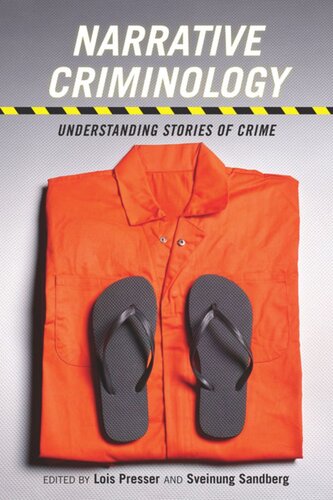

Most ebook files are in PDF format, so you can easily read them using various software such as Foxit Reader or directly on the Google Chrome browser.
Some ebook files are released by publishers in other formats such as .awz, .mobi, .epub, .fb2, etc. You may need to install specific software to read these formats on mobile/PC, such as Calibre.
Please read the tutorial at this link: https://ebookbell.com/faq
We offer FREE conversion to the popular formats you request; however, this may take some time. Therefore, right after payment, please email us, and we will try to provide the service as quickly as possible.
For some exceptional file formats or broken links (if any), please refrain from opening any disputes. Instead, email us first, and we will try to assist within a maximum of 6 hours.
EbookBell Team

4.4
22 reviewsExplores the role of stories in criminal culture and justice systems around the world
Stories are much more than a means of communication—stories help us shape our identities, make sense of the world, and mobilize others to action. In Narrative Criminology, prominent scholars from across the academy and around the world examine stories that animate offending. From an examination of how criminals understand certain types of crime to be less moral than others, to how violent offenders and drug users each come to understand or resist their identity as ‘criminals’, to how cultural narratives motivate genocidal action, the case studies in this book cover a wide array of crimes and justice systems throughout the world.
The contributors uncover the narratives at the center of their essays through qualitative interviews, ethnographic fieldwork, and written archives, and they scrutinize narrative structure and meaning by analyzing genres, plots, metaphors, and other components of storytelling. In doing so, they reveal the cognitive, ideological, and institutional mechanisms by which narratives promote harmful action. Finally, they consider how offenders’ narratives are linked to and emerge from those of conventional society or specific subcultures. Each chapter reveals important insights and elements for the development of a framework of narrative criminology as an important approach for understanding crime and criminal justice. An unprecedented and landmark collection, Narrative Criminology opens the door for an exciting new field of study on the role of stories in motivating and legitimizing harm.